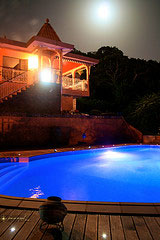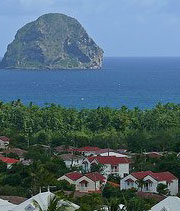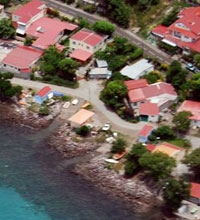Inheritance tax and inheritance law in Martinique

French private international law uses the standard double rule on inheritance: the law of the deceased's domicile applies to moveable assets, and the law of the location of the property applies to immoveable assets.
French inheritance law is restrictive. A defined proportion of the estate, the réserve legale, must be given to specified categories of heirs: firstly, to the children and issue, and if no children or issue, the surviving spouse. The amount they can claim will take into consideration the value of gifts given during lifetime. However, under some very specific conditions, the beneficiaries can give up all or part of their rights in advance.
The situation as regards héritiers réservataires:
- If the deceased is survived by one child, he can give away by will no more than half of his French property.
- If he is survived by two children, this limit drops to one third
- If he is survived by three or more children, he can only give away a quarter of his French property.
- If the deceased has no children, a husband or wife is considered a legal heir and has rights to one fourth of the French property of the deceased.
If a married couple buys the property jointly, then the situation is again different - the above shares are based on a share of half the property, the other half remaining in the possession of the surviving spouse.
The surviving spouse. The rights of a spouse were strengthened by several laws over the last years. But for these rights to be valid, the couple must not be divorced.
- If the deceased spouse leaves descendants (children and grandchildren, etc) who are also the descendants of the surviving spouse, then the surviving spouse has a choice - he or she can have either one quarter of the property outright, or a life interest in the property (i.e. the use of it during their lifetime). The right to temporary accommodation is immediately applicable. To enjoy a lifelong right to accommodation, the surviving spouse must express this desire within one year of the death.
- If the descendants who survive are not all the descendants of the surviving spouse (e.g. children from a previous marriage)...there is no choice - the surviving spouse inherits one quarter of the property.
- If there are no descendants, and only the mother and father survive, the surviving spouse inherits half of the property (three-fourths if only one of the parents survives); the rest goes to their parents-in-law. In this and the former cases, a married person may deprive his/her spouse of these rights. The right to lifelong accommodation can only be deprived a will executed by two notaries or one notary in the presence of two witnesses. The purpose of this restrictive provision is to prevent a married person from taking such a serious decision lightly.
- If there are brothers and sister or their descendants (but no parents or descendants), the surviving spouse inherits the whole property, with exceptions for certain assets. • If there are only grandparents, great grandparents or other relatives (but no parents, siblings or descendants), then the surviving spouse inherits the whole property.
The remainder of the estate, the quota disponible, can be left as the owner wishes. It is possible to ignore these provisions but the héritiers réservataires can always bring a claim for their entitlement, unless they have previously given up their rights.
A Société Civile Immobilière (SCI)

Note that holding property through a Société Civile Immobilière (SCI) allows the investor, foreign or otherwise, to own shares, rather than real estate directly - so that the SCI shares, which are considered movable property, are not subject to French inheritance law (though they are subject to French inheritance taxes). They can be left to the heirs of the deceased according to the inheritance laws of the latter's place of residence.
There are some inheritance tax advantages of an SCI too - children and parents can be included in a real estate acquisition (such as the purchase of a second home or vacation home). Later on, the parents' share of the property can be gradually transferred to children or grandchildren in small increments, with a tax burden that is spread out over time. However, note that if furnished property held through an SCI is rented out, it loses its tax transparency, and is taxed like a company.
INHERITANCE TAX
If an individual dies a resident in France, French inheritance tax is payable on all his assets. Otherwise, inheritance tax is payable only on assets located in France.
French inheritance tax is paid by each beneficiary, pro rata to the value of net assets received after deduction of all liabilities.
- There is no longer any inheritance tax between spouses for unrelated couples who have signed a Pacte Civile de Solidarieté (PACS) agreement.
- There is a tax-free allowance, which depends on the relationship of the person involved: €151,950 for parents and children, €15,195 for brothers and sisters, additional €151,950 for handicapped inheritors, and €1,520 for all other inheritors.
Using a very basic example, in a situation where a spouse and two children have each inherited one-third, and the value of the inheritance totals €450,000, the taxation position will be as follows:
- The spouse is exempted from inheritance tax and thus receives €150,000 tax-free (€150,000 ÷ 3).
- The children: €450,000 ÷ 3 = €150,000 potentially taxable each, but each child benefits from a tax-free band of €151,950 so there is no inheritance tax to pay.
The balance in excess of the allowance is taxed at progressive rates from 5% up to a maximum of 40%:
INHERITANCE TAX RATES FOR SURVIVING CHILDREN AND PARENTS |
|
| TAXABLE INHERITANCE (€) | TAX RATE |
| Up to €7,699 | |
| €7,699 to €11,548 | |
| €11,548 to €15,195 | |
| €15,195 to €526,760 | |
| €526,760 to €861,050 | |
| €861,050 to €1,722,100 | |
| Over €1,722,100 | |
Other beneficiaries
After the tax free bands, brothers and sisters are charged 35% when inheriting less than €23,299; 45% when inheriting more. Relatives up to the fourth degree are charged 55%, and those more distant and unrelated persons are charged 60%.
It is normal for couples to hold property together, in equal shares. In this case, when one dies, inheritance tax is only payable on half the value of the property.
GIFT TAX

Liability to French gift tax is very similar to French inheritance tax. Gzifts can be made tax-free up to the amounts which can be inherited tax-free, once every 6 years. In addition any transfer of cash by parents or grandparents to children or grandchildren, and even great-grandchildren over 18 years old, are exempt of any gift tax up to €30,390 provided that the donor is less than 65 years old.
A popular way to reduce French inheritance tax is for property owners to give away their house to their children while retaining the lifetime right (usufruct or usufruit) to remain in occupation and to draw any income (such as rent). The state helpfully discounts the value of the gift by 60% (if the parents are between 41 and 50) and by 50% (if the parents are between 51 and 60), if they gift while retaining usufruct rights. Parents can transfer a lot in this way. If a house is owned in equal shares and is gifted to three children, each child gets a tax-free allocation of €151,950 so €455,850 can pass per parent, i.e., (since the value of the property is reduced by 60% if the parent is under 51) property worth €1,139,625 is gifted tax-free per parent.
Moreover, should gift tax be due, a reduction is applicable depending on the age of the donor and on the rights that are given:
- The parent retain the lifetime right:
- 35% reduction when the donor is less than 70 years old
- 10% reduction when the donor is between 70 and 80 years old
- The parent does not retain the lifetime right:
- 50% reduction when the donor is less than 70 years old
- 30% reduction when the donor is between 70 and 80 years old
However for inheritance purposes, when cash is given away 30, 20 or 1 year before the deceased's death, it is notionally regarded as part of the deceased's French estate, and the forced heirship rules apply.